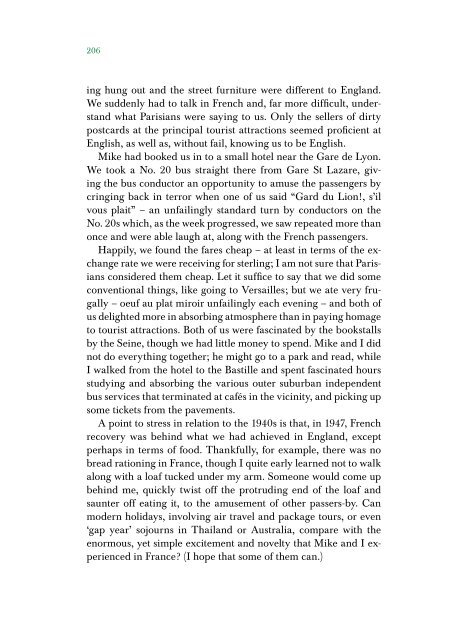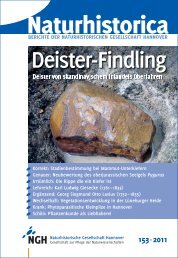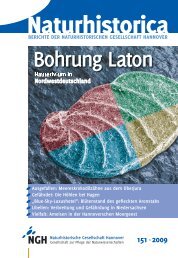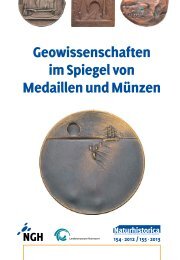Roger Atkinson - Blackout, Austerity and Pride
Blackout, Austerity and Pride – Life in the 1940s is a book written primarily from actual experience. It tells how an alert and intelligent boy, effectively orphaned at the age of 13, sets out to gain a foothold in life. Aided by some resourceful women, he unites a thirst for knowledge with a growing passion for places and buses and a strong sense of duty. http://www.memoir1940s.org.uk/
Blackout, Austerity and Pride – Life in the 1940s is a book written primarily from actual experience. It tells how an alert and intelligent boy, effectively orphaned at the age of 13, sets out to gain a foothold in life. Aided by some resourceful women, he unites a thirst for knowledge with a growing passion for places and buses and a strong sense of duty.
http://www.memoir1940s.org.uk/
You also want an ePaper? Increase the reach of your titles
YUMPU automatically turns print PDFs into web optimized ePapers that Google loves.
206<br />
ing hung out <strong>and</strong> the street furniture were different to Engl<strong>and</strong>.<br />
We suddenly had to talk in French <strong>and</strong>, far more difficult, underst<strong>and</strong><br />
what Parisians were saying to us. Only the sellers of dirty<br />
postcards at the principal tourist attractions seemed proficient at<br />
English, as well as, without fail, knowing us to be English.<br />
Mike had booked us in to a small hotel near the Gare de Lyon.<br />
We took a No. 20 bus straight there from Gare St Lazare, giving<br />
the bus conductor an opportunity to amuse the passengers by<br />
cringing back in terror when one of us said “Gard du Lion!, s’il<br />
vous plait” – an unfailingly st<strong>and</strong>ard turn by conductors on the<br />
No. 20s which, as the week progressed, we saw repeated more than<br />
once <strong>and</strong> were able laugh at, along with the French passengers.<br />
Happily, we found the fares cheap – at least in terms of the exchange<br />
rate we were receiving for sterling; I am not sure that Parisians<br />
considered them cheap. Let it suffice to say that we did some<br />
conventional things, like going to Versailles; but we ate very frugally<br />
– oeuf au plat miroir unfailingly each evening – <strong>and</strong> both of<br />
us delighted more in absorbing atmosphere than in paying homage<br />
to tourist attractions. Both of us were fascinated by the bookstalls<br />
by the Seine, though we had little money to spend. Mike <strong>and</strong> I did<br />
not do everything together; he might go to a park <strong>and</strong> read, while<br />
I walked from the hotel to the Bastille <strong>and</strong> spent fascinated hours<br />
studying <strong>and</strong> absorbing the various outer suburban independent<br />
bus services that terminated at cafés in the vicinity, <strong>and</strong> picking up<br />
some tickets from the pavements.<br />
A point to stress in relation to the 1940s is that, in 1947, French<br />
recovery was behind what we had achieved in Engl<strong>and</strong>, except<br />
perhaps in terms of food. Thankfully, for example, there was no<br />
bread rationing in France, though I quite early learned not to walk<br />
along with a loaf tucked under my arm. Someone would come up<br />
behind me, quickly twist off the protruding end of the loaf <strong>and</strong><br />
saunter off eating it, to the amusement of other passers-by. Can<br />
modern holidays, involving air travel <strong>and</strong> package tours, or even<br />
‘gap year’ sojourns in Thail<strong>and</strong> or Australia, compare with the<br />
enormous, yet simple excitement <strong>and</strong> novelty that Mike <strong>and</strong> I experienced<br />
in France? (I hope that some of them can.)


















